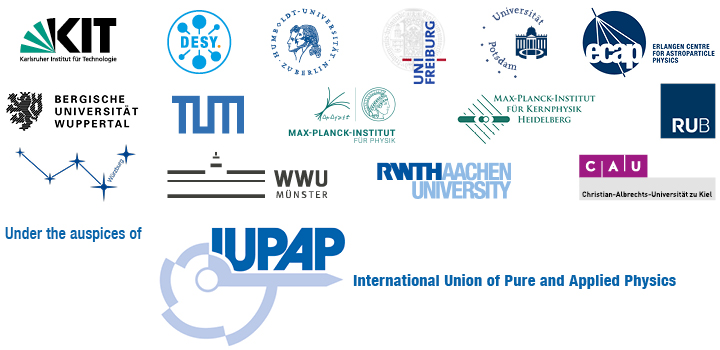Job description:
The center for underground physics (CUP, https://cupweb.ibs.re.kr) at Institute for Basic Science (IBS) in South Korea invites applications for a Postdoctoral research associate position to work on the project "Direct and indirect detection searches of sub-GeV dark matter signal in the Super-Kamiokande and future Water Cherenkov Detectors" (FY 2021~2026), funded with Young Scientist Fellowship program in IBS. The position is full-time, for an initial duration of 24 months, with the possibility of extension for 12 months. The annual salary will be decided based on the skills and experience of the applicant (starts from 50M KRW before taxation).
Super-Kamiokande (SK) is a Water Cherenkov Detector built in Kamioka, Japan. It has been leading a wide range of physics over 20 years, including Nobel Prize awarded discovery of atmospheric neutrino oscillation and leading tests of dark matter with mass below O(10) GeV. Recently, a rare-earth element, gadolinium has been introduced into the SK water, starting a new period of observations (SK-Gd).
Our group is particularly interested in searches for sub-GeV dark matter signal, via dark matter-electron and dark matter-nucleus scattering inside the detector, as well as neutrino flux produced via dark matter annihilation. With its huge volume, SK is expected to lead sub-GeV dark matter and other rare signal searches. Identification of the scattering signal and mitigation of the background is important.
A Successful candidate is expected to take a leading role in the development and subsequent application of analysis methods to dark matter searches. The main tasks include identification of recoiled proton and other dark matter signals using neural network technique, modeling of dark matter scattering using Geant4 simulation, and background rejection. The candidate will also contribute to calibration and R&D efforts for SK and future Water Cherenkov Detectors such as WCTE. In particular, the candidate is expected to design and lead an ex-situ experiment to measure optical properties of materials used in the SK, and improve the detector simulation accordingly. Frequent travels to ICRR’s Kamioka Observatory is foreseen (after pandemic).
The expected employment date is November 1, 2021.
Personal Qualification:
Candidates should have a Ph.D. in the past 5 years. Programming skills and good communication skills in English are necessary. Experiences with low-energy neutrino experiment, statistical methods, data analysis and Monte Carlo simulations, particularly with the ROOT and GEANT4, will be advantageous. Applicants from underrepresented groups are especially encouraged to apply.
Application:
Applicants should send a CV (including a list of publications), a brief research statement, and the consent form (can be downloaded here: https://www.ibs.re.kr/prog/recruit/eng/sub04_01/view.do?pageIndex=1&searchCondition=&searchKeyword=&idx=1248) to recruit1@ibs.re.kr, also arrange for two letters of reference to be mailed to the same email address. Inquiries about the position should be directed to Dr. Koun Choi (koun@ibs.re.kr).
For the full consideration, the application and letters should arrive by August 13, 2021 while the position is open until filled.

